Mom Shamed for Serving Pizza and Snacks at Sleepover—But Was She Really in the Wrong?
A mother’s decision to serve traditional sleepover fare—pizza, chips, lemonade, and donuts—to her 13-year-old daughter’s softball team sparked controversy among some parents. While many view such treats as standard for slumber parties, others expressed concerns about the nutritional value, leading to a debate on appropriate food choices during children’s social gatherings.
The author of the post is a mom of three, and her eldest daughter plays softball on a local kids team

The parents of the team members sometimes arrange sleepovers for the kids—and the author is no exception
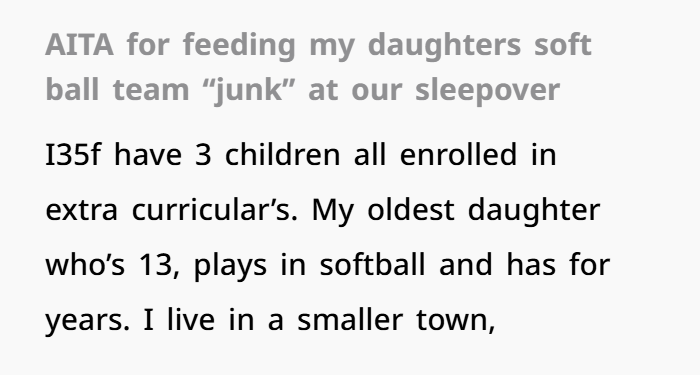
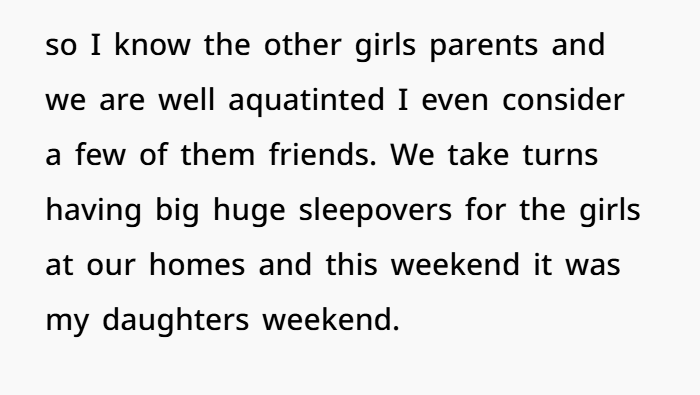
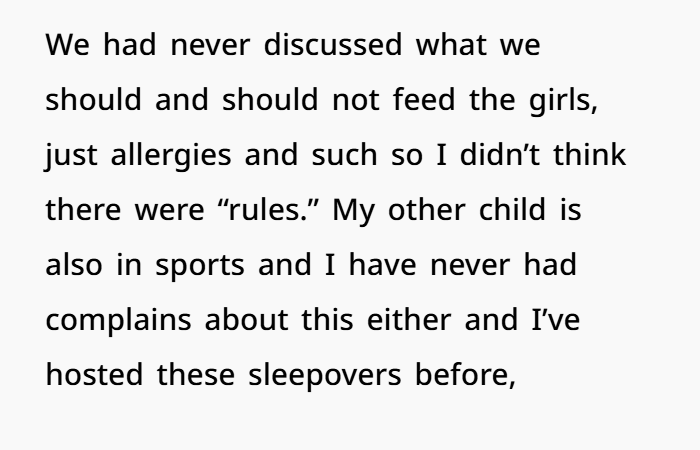
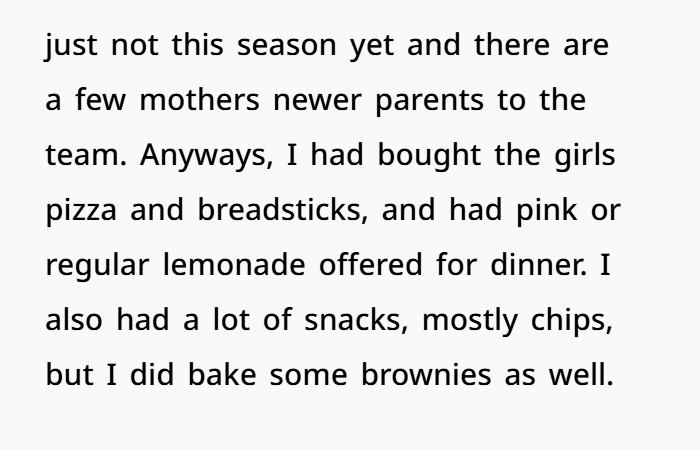
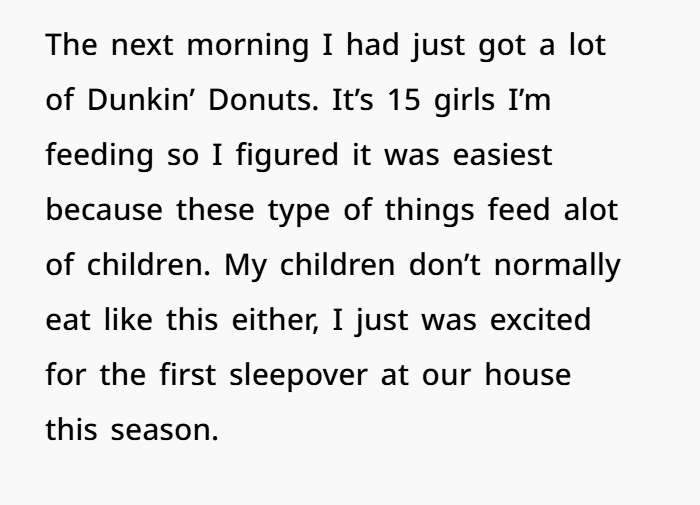

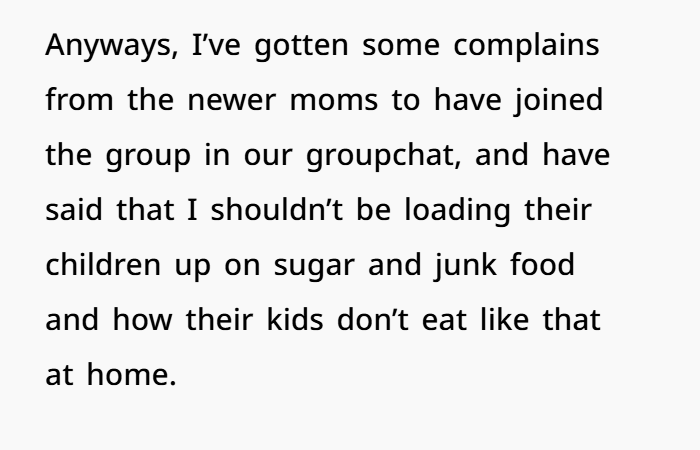
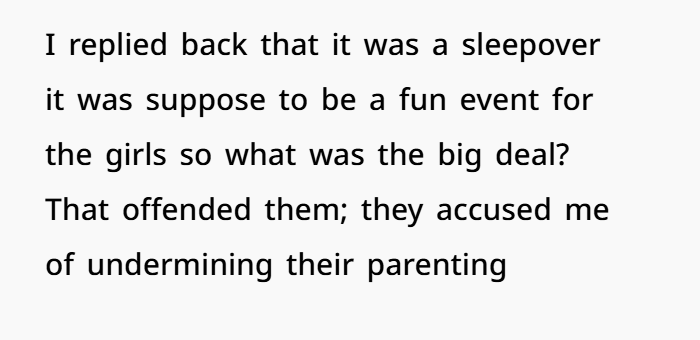
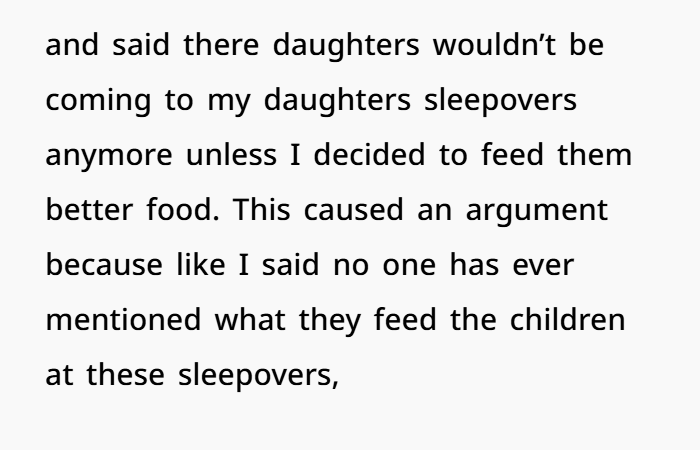
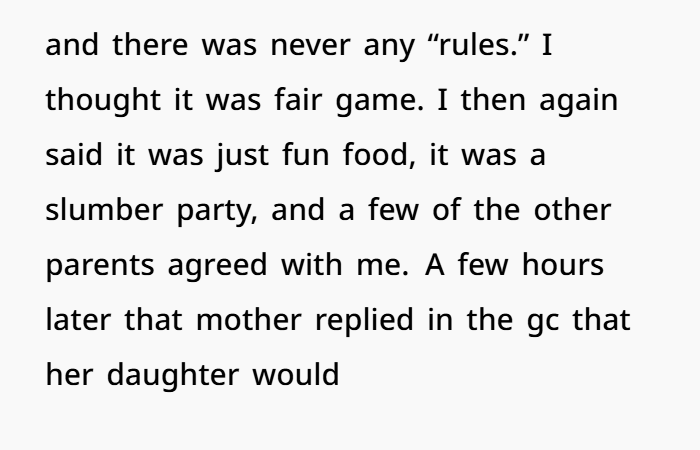
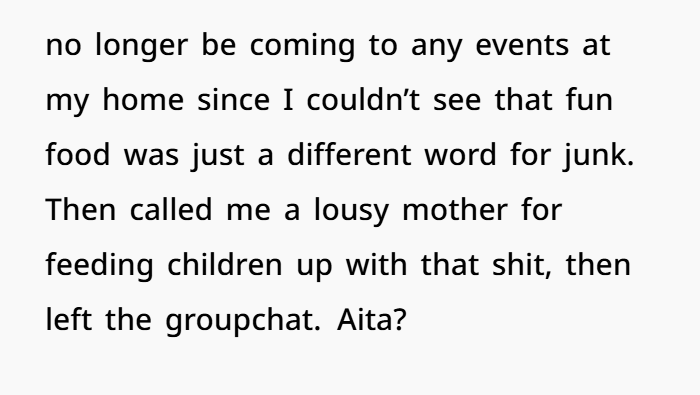

Absolutely, you’re not the a-hole here. Hosting a sleepover for your daughter’s softball team and providing popular treats like pizza, chips, brownies, and donuts is a common and accepted practice. Such foods are often associated with fun and celebration, especially in group settings like sleepovers.My Vanderbilt Health+3Pinterest+3Farm Rich+3
Understanding the Sleepover Food Culture
Sleepovers are traditionally times when dietary rules are relaxed, and children indulge in treats they might not have regularly. This approach is supported by various parenting resources that suggest offering a mix of fun and healthy options to accommodate different preferences and dietary needs.
Addressing Parental Concerns

It’s important to acknowledge that some parents have specific dietary guidelines for their children. However, unless there was a prior agreement or communication about food restrictions beyond allergies, it’s unreasonable for them to expect you to anticipate and adhere to their personal standards. Open communication is key in such situations, and it’s beneficial for parents to discuss any specific concerns before the event. Allergic Living
Moving Forward
To avoid similar situations in the future, consider sending out a message before hosting, asking parents to inform you of any dietary restrictions or preferences. This proactive approach can help ensure that all children are accommodated and that parents feel heard and respected.
Most commenters backed the author, praising her for doing it all at her own expense
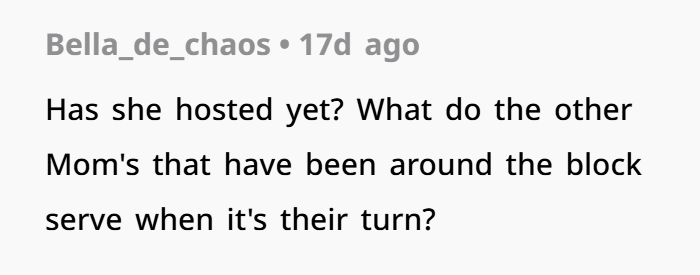
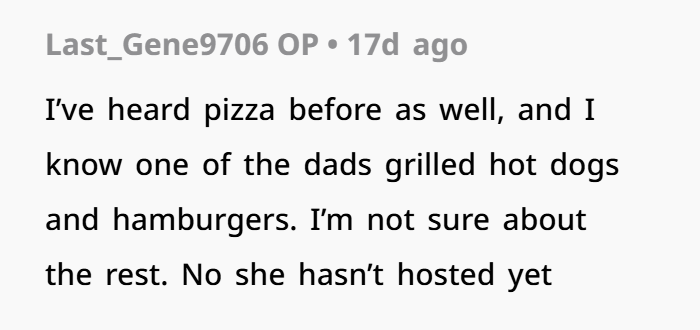
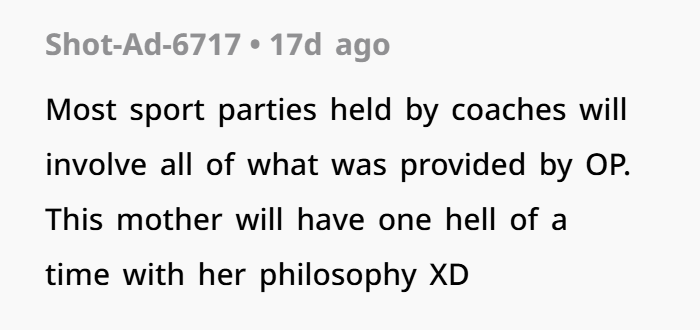
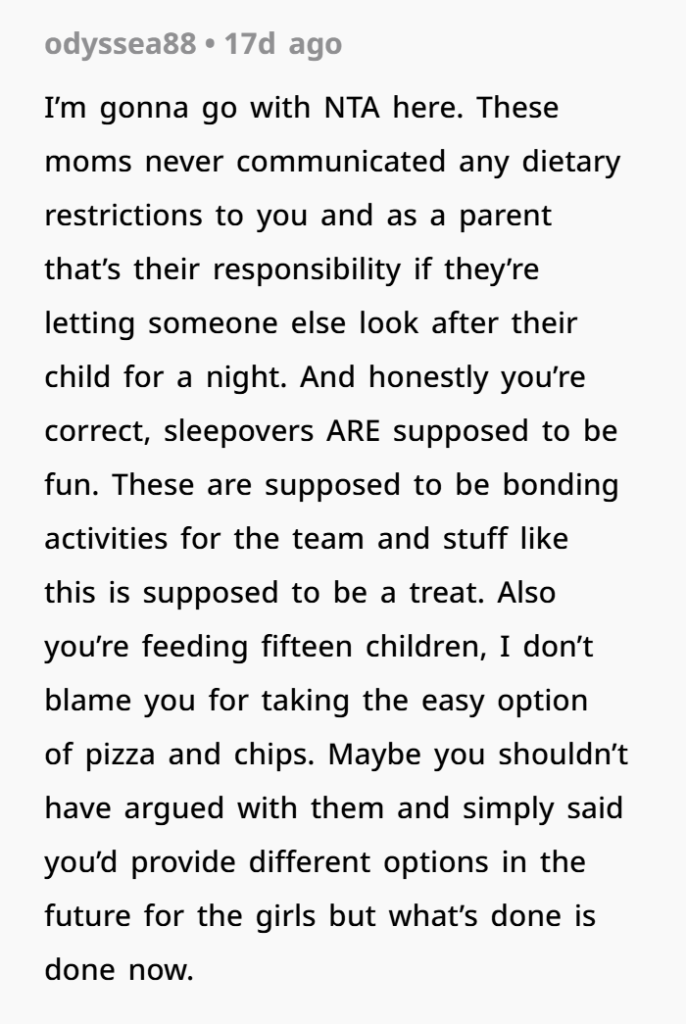
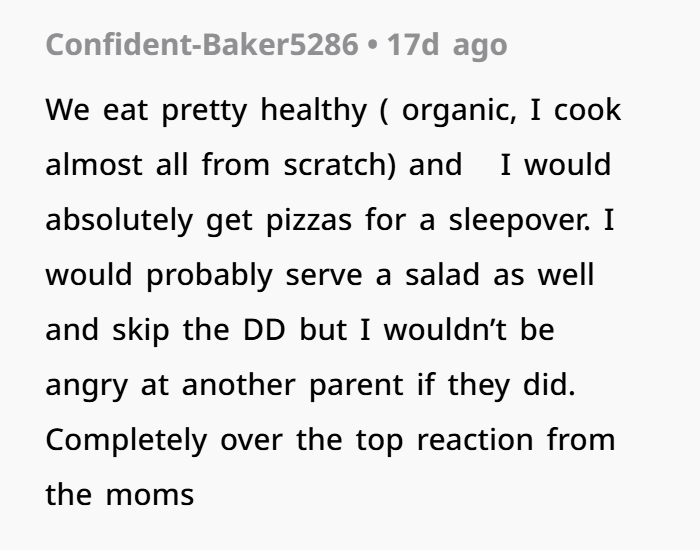

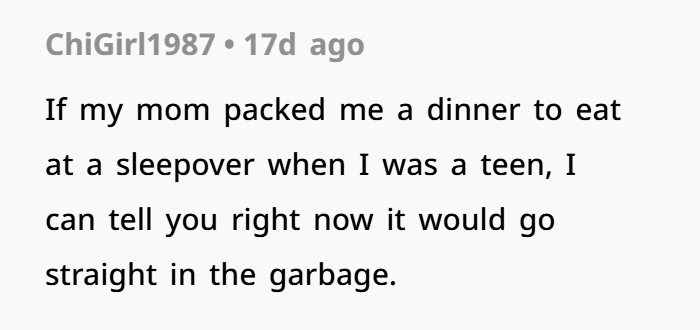
Your intention was to create a fun and memorable experience for your daughter and her teammates, which you achieved. While it’s unfortunate that some parents were dissatisfied, your actions were in line with common practices for such events. Maintaining open lines of communication can help prevent misunderstandings in the future.

